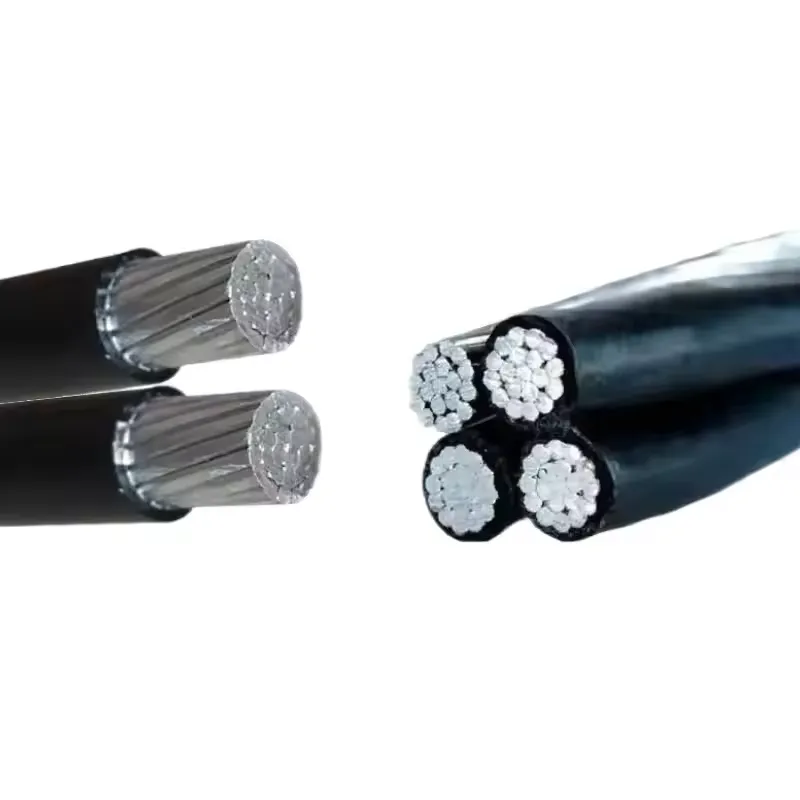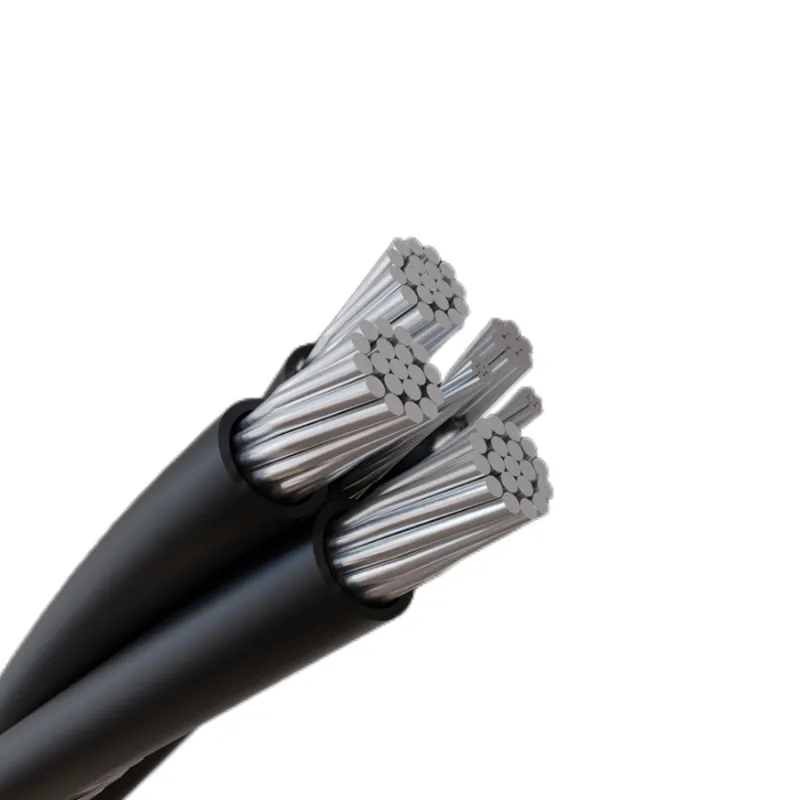Time: 2025-04-10 15:18:03 Source: Henan Province Jianyun Cable Co., Ltd.
aerial bundled cable, ABC cable, overhead insulated cable, LV aerial bundled cable, MV aerial bundled cable, benefits of aerial bundled cable, ABC cable installation, aerial bundled conductor, insulated overhead cable, ABC vs bare conductor
Aerial Bundled Cable (ABC) is an overhead power-distribution solution in which multiple insulated phase conductors are tightly bundled—often around a bare neutral—to replace traditional bare conductors separated by air gaps. By insulating each phase, ABC significantly reduces the risk of faults from wind, foliage contact, or wildlife, enhancing both safety and reliability in overhead networks.
ABC—also called aerial bundled conductors—is manufactured similarly to cross-linked cables, with each phase conductor surrounded by insulation and a protective sheath. Unlike uninsulated overhead lines, ABC can be installed closer to trees or buildings without arcing, and it simplifies pole structures by eliminating the need for crossarms and external insulators.
Residential & Commercial Service Drops: Widely used for low-voltage (0.6/1 kV) service connections to homes and businesses, improving reliability in urban and suburban settings.
Rural Electrification: In areas with extensive foliage, ABC minimizes tree-trimming costs and outages caused by branches touching conductors.
Medium-Voltage Feeders: Factory-assembled MV ABC (6–33 kV) serves as primary feeders in densely populated or peri-urban networks, offering rapid deployment and reduced maintenance.
Temporary Power Installations: Construction sites and event venues often employ ABC for quick, safe overhead power without extensive support infrastructure.
Phase conductors in ABC are typically aluminum or aluminum alloy, chosen for their conductivity and light weight. Neutral conductors may be aluminum or copper. Insulation materials include PE, PVC, XLPE, or HDPE, often UV-stabilized for outdoor durability. Messenger wires—galvanized steel or aluminum alloy—provide mechanical support when the cable is self-supporting.

| Core Count | Conductor Material | Insulation | Messenger Wire | Additional Components |
|---|---|---|---|---|
| LV ABC (0.6/1 kV) | ||||
| 1 | Aluminium / Aluminium Alloy | PE, PVC, XLPE, HDPE | Galvanized Steel or Al Alloy | – |
| 2 | Aluminium / Aluminium Alloy | PE, PVC, XLPE, HDPE | Galvanized Steel or Al Alloy | – |
| 3 | Aluminium / Aluminium Alloy | PE, PVC, XLPE, HDPE | Galvanized Steel or Al Alloy | Optional Neutral (Al/Cu) |
| 4 | Aluminium / Aluminium Alloy | PE, PVC, XLPE, HDPE | Galvanized Steel or Al Alloy | Neutral Conductor (Al/Cu) |
| 5 | Aluminium / Aluminium Alloy | PE, PVC, XLPE, HDPE | Galvanized Steel or Al Alloy | Neutral Conductor; Grounding Conductor (Al/Cu) |
| 6 | Aluminium / Aluminium Alloy | PE, PVC, XLPE, HDPE | Galvanized Steel or Al Alloy | Neutral & Grounding Conductors (if required) |
| MV ABC (6–33 kV) | ||||
| 1 | Aluminium / Aluminium Alloy | PE, PVC, XLPE, HDPE | Galvanized Steel or Al Alloy | Conductor & Insulation Shields; Copper Tape Screening; UV-stabilized PE/PVC outer sheath |
| 3 + Messenger | Aluminium / Aluminium Alloy | PE, PVC, XLPE, HDPE | Galvanized Steel or Al Alloy | Conductor & Insulation Shields; Copper Tape Screening; UV-stabilized PE/PVC outer sheath |
Enhanced Safety: Insulation prevents phase-to-phase faults and reduces electric shock risk, cutting down outages and maintenance calls.
Improved Reliability: Bundled conductors resist wind- and foliage-induced short circuits; reduced tree-trimming needs translate to fewer service interruptions.
Cost Savings: Simplified pole structures eliminate crossarms and insulators, lowering installation and upkeep expenses.
Aesthetic & Spatial Efficiency: Narrower rights-of-way and cleaner streetscapes make ABC ideal for urban environments.
Theft & Vandalism Deterrence: Insulated conductors are harder to tap unnoticed, protecting revenue and enhancing security.

While ABC offers many advantages, its heavier weight can necessitate more poles and shorter spans. Insulation may degrade over time due to UV exposure, and repair equipment for MV ABC can be more specialized. Proper tensioning and sag management are critical to long-term performance.